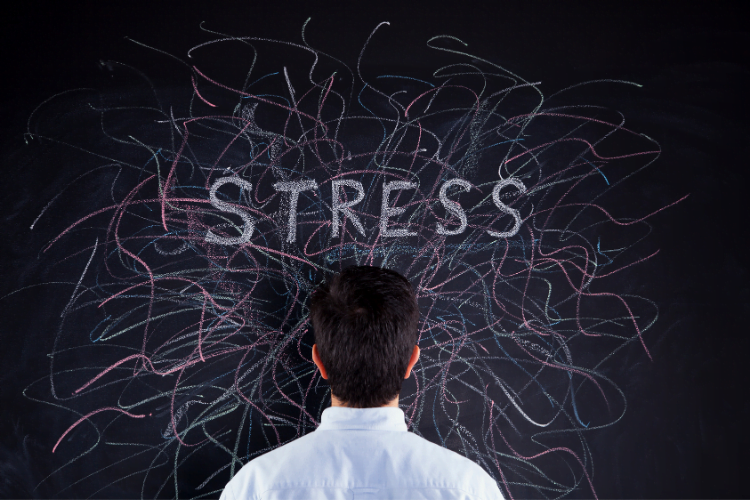
Stress, like an uninvited guest, often creeps into our lives, affecting both our mental and physical well-being.
Prof Dr. Abdullah G Arijo
In the past, our ancestors faced immense challenges and threats, yet they seemed to manage anxiety and stress differently than we do today. The following could be the possible reasons.
- Realistic Expectations:
Our ancestors didn’t expect to be happy every minute. They understood that life had its ups and downs and didn’t believe others were perpetually happy. Accepting occasional fear and discomfort was part of their mindset.
- Self-Soothing Skills:
Instead of relying on genetics or pills, they actively cultivated self-soothing techniques. They viewed serenity as a learned skill, not an innate trait.
When faced with danger, they focused on their next step. Just like a hungry gazelle, they analyzed sensory input, weighed evidence, and made decisions. Each step toward a reward triggered dopamine while escaping threats relieved cortisol1.
- Different Belief Systems:
Our ancestors held diverse beliefs, some of which could exacerbate anxiety. They feared jealous neighbors’ curses or eternal damnation.
However, their coping mechanisms were rooted in practicality and resilience. They didn’t shy away from life’s uncertainties; instead, they embraced them as part of the human experience.
- Living Conditions:
Life was physically demanding, and dangers lurked everywhere. Children did manual labor, villages faced invasions, and basic tasks like going to the bathroom carried risks.
Their exposure to mortality was raw and unfiltered. Death occurred at home, not in hospitals, allowing them to witness life’s impermanence.
- Stoicism and Present Moment Focus:
Ancient Stoic philosophers recognized that anxiety stemmed from negative or untrue thoughts and feelings. They encouraged people to embrace the present moment rather than dwell on the past or future.
This means, our ancestors coped by accepting life’s challenges, building resilience, and focusing on practical steps. Perhaps there’s wisdom in their approach that we can learn from even in our modern, fast-paced world.
 Stress is body’s natural response to external pressures, whether they’re work-related, personal, or environmental
Stress is body’s natural response to external pressures, whether they’re work-related, personal, or environmental
Stress, like an uninvited guest, often creeps into our lives, affecting both our mental and physical well-being. It’s no exaggeration to say that stress is the mother of all diseases, as its impact reverberates throughout our bodies, undermining our vitality and aging us prematurely. But fear not! This article will explore how to combat stress, maintain a youthful appearance, and foster overall health.
Understanding Stress
Stress is body’s natural response to external pressures, whether they’re work-related, personal, or environmental. A little stress can be beneficial, motivating us to perform daily tasks efficiently. However, chronic stress is where the trouble begins. Prolonged exposure to stress hormones wreaks havoc on our immune system, cardiovascular health, and mental clarity.
The Signs of Stress
Recognizing stress is crucial. Here are some common signs:
- Physical Symptoms:
Fatigue: Feeling perpetually drained.
Headaches: Tension headaches or migraines.
Digestive Issues: Upset stomach, bloating, or irritable bowel syndrome.
Muscle Tension: Knots in your neck, shoulders, or back.
- Emotional and Behavioral Signs:
Anxiety: Constant worry or unease.
Irritability: Snapping at loved ones or colleagues.
Insomnia: Difficulty falling or staying asleep.
Changes in Appetite: Overeating or loss of appetite.
How to Combat Stress and Stay Youthful
- Prioritize Self-Care:
- Sleep Well: Aim for 7-9 hours of quality sleep each night.
- Nutrition: Consume a balanced diet rich in fruits, vegetables, whole grains, and lean proteins.
- Exercise Regularly: Physical activity releases endorphins, reducing stress.
- Relaxation Techniques: Try yoga, meditation, or deep breathing exercises.
- Positive Lifestyle Choices:
- Hydrate: Water keeps your skin supple and radiant.
- Limit Alcohol and Caffeine: Both can exacerbate stress.
- Avoid Smoking: Smoking accelerates aging and harms your health.
- Mindfulness and Mental Wellness:
- Practice Gratitude: Keep a journal and write down things you’re thankful for.
- Mindful Moments: Take breaks during the day to focus on your breath and clear your mind.
- Connect with Loved Ones: Social support is essential for stress management.
- Hobbies and Joyful Pursuits:
- Read: Immerse yourself in a good book.
- Listen to Music: It soothes the soul.
- Engage in Creative Activities: Painting, gardening, or playing a musical instrument.
- Laughter and Lightness:
- Watch a Comedy: Laughter reduces stress hormones.
- Spend Time with Pets: Their unconditional love brings joy.
- Cultivate Optimism: Replace negative thoughts with positive affirmations.
 Remember, stress is inevitable, but how we respond to it matters. By nurturing our bodies, minds, and spirits, we can defy the aging process and radiate youthful energy. So, take a deep breath, smile, and embrace life with resilience!
Remember, stress is inevitable, but how we respond to it matters. By nurturing our bodies, minds, and spirits, we can defy the aging process and radiate youthful energy. So, take a deep breath, smile, and embrace life with resilience!
Sources: World Health Organization, Mayo Clinic: Chronic Stress, Harvard Health: Top Ways to Reduce Daily Stress and Mayo Clinic: Stress Symptoms
__________________
 Prof. (R) Dr. Abdullah G. Arijo is Advisor and Visiting Professor, SBBUVAS, Sakrand, Pakistan. He is Ex-Chairman, Department of Parasitology, Sindh Agriculture University and Ex-Advisor Academics & P&D to Vice Chancellor SAU Tandojam
Prof. (R) Dr. Abdullah G. Arijo is Advisor and Visiting Professor, SBBUVAS, Sakrand, Pakistan. He is Ex-Chairman, Department of Parasitology, Sindh Agriculture University and Ex-Advisor Academics & P&D to Vice Chancellor SAU Tandojam
Read: Precision agriculture, a modern farming technique